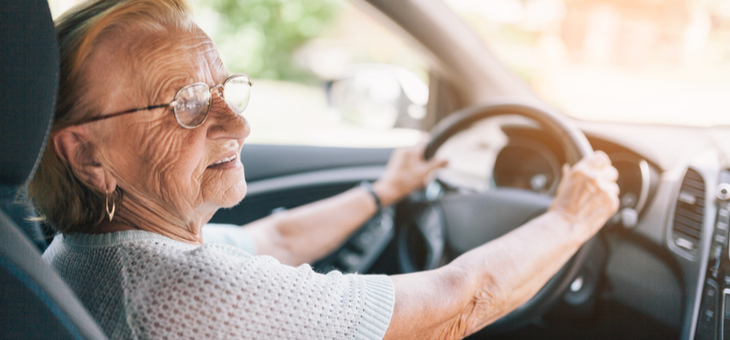One of the best ways to stay safe on the roads is to avoid potentially hazardous situations wherever possible. This is especially true for older drivers.
Almost 400 drivers aged 75 and over took part in a Western Sydney University study aimed at investigating their driving habits.
The drivers initially participated in a workshop that helped them identify high-risk factors including driving at night, in school zones, in the rain and on motorways.
University researchers and the George Institute for Global Health then attached GPS devices to the cars of the 380 participants to track whether they put into practice what they had learnt in the workshop.
The data found the drivers averaged 104.9 kilometres a week, with each trip averaging five kilometres to their local shopping centre or neighbouring suburb. The longest trip was just 11 kilometres.
Read more: What to do if your diesel car runs out of fuel
Lead researcher Dr Kristy Coxon said the research found that older drivers modified their behaviour on the roads, including avoiding right-hand turns into oncoming traffic and driving alone.
“We also found older drivers actually recognise their ability and adjust accordingly,” Dr Coxon said.
“Elderly drivers who have lower confidence often drove shorter trips and drove in familiar areas close to home. Drivers who had lower levels of function and ability also drove fewer kilometres. So, many do recognise their abilities and are able to [find a] balance.”
Read more: Are you really a good driver?
The study identified the top five mistakes made by older drivers.
Making right-hand turns at intersections
According to Dr Coxon, this involves complex decision-making as unprotected intersections often don’t have traffic lights. This type of turn requires the driver to have considerable visual motor skills in regard to gap selection and judging the distance of the car, which can be demanding.
Driving in high volume areas
Dr Coxon believes it is advantageous for less confident senior drivers to avoid areas such as school zones during peak hour, as traffic in these zones can be unpredictable.
Read more: Even good drivers make mistakes
Driving alone
‘Two set of eyes are better than one’ is a policy Dr Coxon always likes to reiterate to older drivers.
Tackling peak hour
Simply put, more cars equals more chance of an accident occurring.
Driving in the rain or at night
Driving when vision is decreased is dangerous for any driver, but can be especially risky for older drivers who may already have decreased vision.
What aspects of driving are proving more challenging to you as you’re ageing? Have you started to limit your trips to your neighbourhood? Are older drivers unfairly blamed for traffic accidents? Why not have your say in the comments section below?
This article first appeared on seniordriveraus.com and is republished here with permission of the author.
Paul Murrell is a motoring writer and creator of seniordriveraus.com, which specialises in “car advice for people whose age and IQ are both over 50”.
If you enjoy our content, don’t keep it to yourself. Share our free eNews with your friends and encourage them to sign up.

